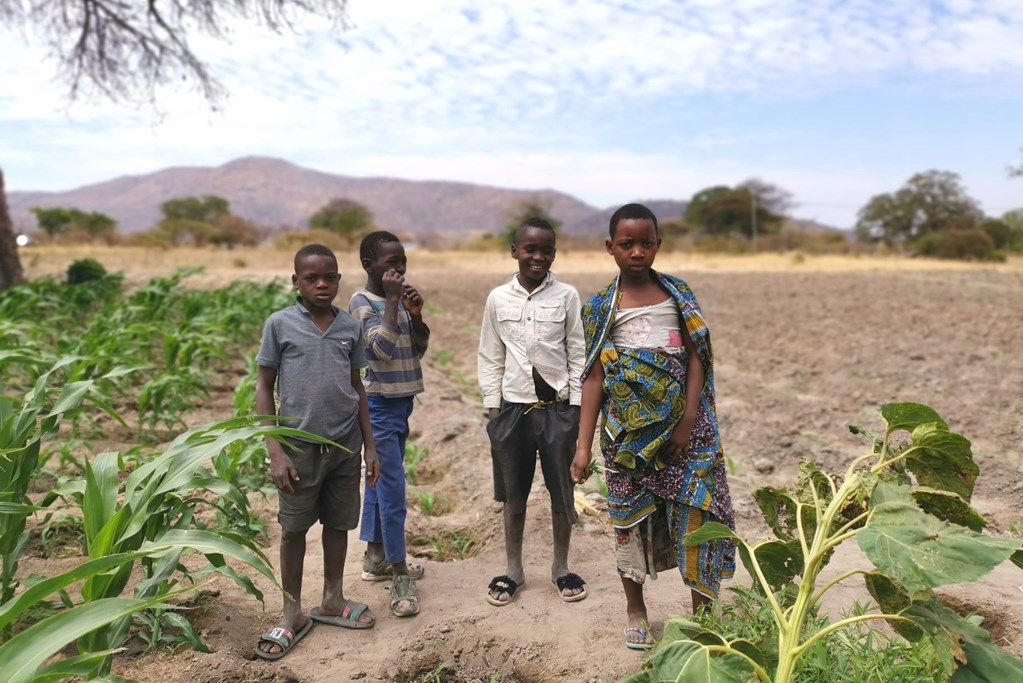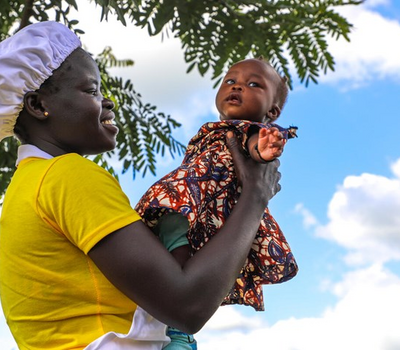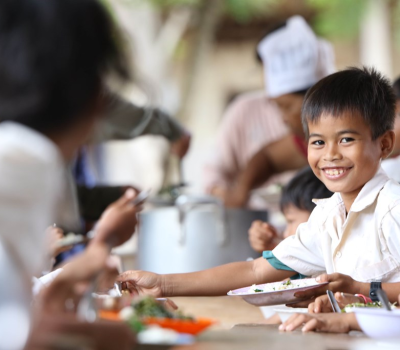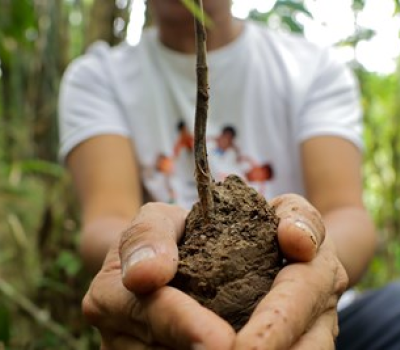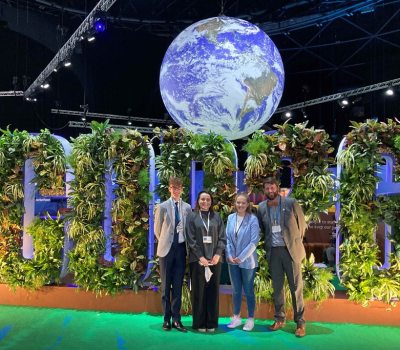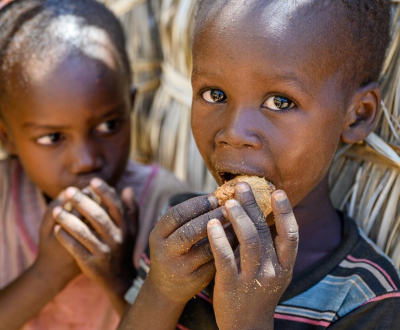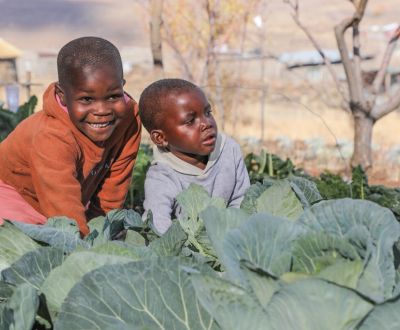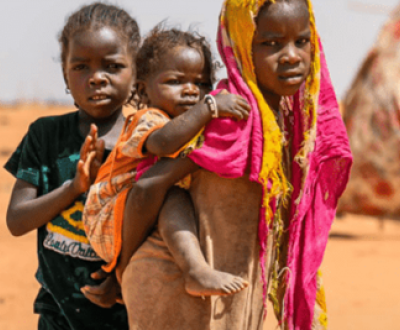From the team
Written by Eoin O'Keeffe - World Vision Ireland's Policy and Advocacy Manager
It's time to reduce carbon emissions with sustainable agriculture
and climate-sensitive approaches to food production.
One of the key achievements of COP28 is the signing of the UAE Declaration on Sustainable Agriculture, Resilient Food Systems and Climate Action, the ‘Emirates Declaration’. For the first time, it recognised the direct links between food systems, agriculture and climate change.
In Dubai, Ireland and 158 other countries signed the Emirates Declaration, signalling their intent to put food at core of their climate action plans and to urgently reduce the environmental impact of food systems. By signing, they are recommitting themselves to halting climate change to the 1.5°C Paris Agreement target and to establishing more sustainable agriculture and food systems which align to this objective. The Emirates Declaration is wide-ranging but focuses on addressing the specific needs of the most-affected groups, which include smallholder farmers, indigenous peoples, and local communities. It prioritises helping these groups mitigate against and adapt to climate change by introducing climate-sensitive strategies and technologies.
Countries have pledged to: enhance water management in agriculture; protect and restore soils and ecosystems; reduce food loss and waste; promote sustainable aquaculture; encourage changes in consumption (particularly in the Global North); and ensure and improve access to nutrition (particularly in the Global South) amongst others.
Significantly for World Vision Ireland, priority has also been given to those most vulnerable,
including women and children, who often feel the greatest impact of climate change.
“All climate initiatives must include a child-sensitive approach as the climate crisis is, after all, a child rights crisis.”
Mary Njeri, World Vision Global Hunger Response Director
This collective pledge aims to urgently reduce the environmental impact of food systems around the world and improve their climate resilience in order to ensure food security and to help those most vulnerable to climate change. The signatories have committed to incorporating food systems into their next round of National Determined Contributions and present their progress at COP 29 in Baku.
Many see the Emirates Declaration as a significant milestone in challenging the climate impact of food systems and adapting to climate change. Others have suggested that the Emirates Declaration has removed the siloed debate around climate, food, and sustainability, allowing for a wider debate on tackling climate change and enhancing people’s access to nutritious food.
“It’s really exciting that food is finally on the table. Now we have this ability to talk about food systems as a solution to the climate crisis in a way that we haven’t ever had the chance to before.”
Danielle Nierenberg, President of Food Tank
Supporters of the Emirates Declaration see it as a first step in tackling industrial farming emissions which enormously contribute to global climate change and exacerbate environmental and Social Challenges, particularly in vulnerable regions in the global South.
However, many suggest it did not go far enough by omitting agriculture emissions and fossil fuels in the final text, despite the mention of ‘shifting greenhouse gas-emitting practices to more sustainable production and consumption approaches’.
“We cannot afford another lost year for food and climate action.”
IPES-Food member Emile Frison
At the core of our programming in World Vision Ireland is hunger, climate, and its impact on children. We believe that food and agriculture have an intrinsic role in both slowing down and adapting to the impacts of climate change. We greatly welcome the Emirates Declaration as it allows Ireland to continue to play a leadership role when it comes to hunger and specifically to nutrition. Together, we can challenge countries around the world to be ambitious in its climate action and to focus on those who are impacted most.
Crucially, the Irish Government will need to decide how it is going to implement the Emirates Declaration at home and what it will mean for our own agricultural system. How can Ireland continue to put climate-sensitive approaches into our food systems and food production and what new technologies can be introduced to reduce our carbon emissions?
Though the declaration is not legally binding and despite the commitments not making it into the final Global Stocktake, for the first time, 159 countries have together announced their intentions to integrate food and agriculture into their climate action plans.
Ultimately, the Emirates Declaration will live or die by politicians’ determination to follow through on their pledge and implement their commitments with substantial policy reforms. It is essential that the political will shown in the designing and agreeing of this document is translated into urgent action. It is only with political will and decisive, urgent action that lives and futures can be saved.
